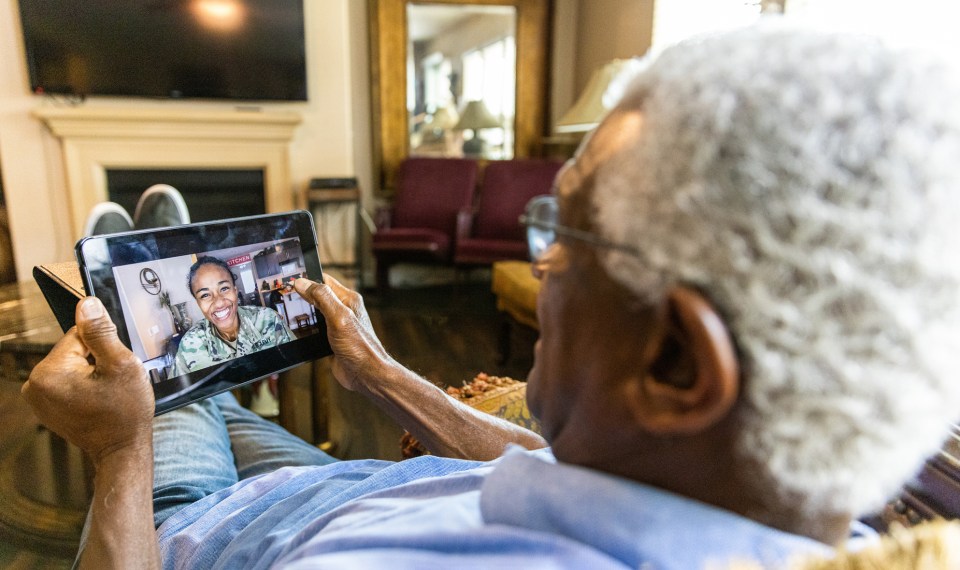Updated 4/3/23
A hospital waiting room is always a difficult place. One hour in the hospital is like a full day anyplace else. I jotted this down on a piece of paper when a family member was in the intensive care unit for over a month.
For many years I have spoken with families camped out in the waiting rooms of hospitals, surrounded by blankets, empty drink containers and a mixture of stale odors. At times it looks like a war zone. When it was my turn to reside in the hospital waiting room, I made the decision not to do the “vigil” nor to set up shop in the hospital, but to design a strategy that would allow my son and me to be fresh and alert enough to make the important decisions that could arise at any moment.
Email Alerts
Sign up to receive the latest news and stories via email.
The Vigil
A vigil is a ritual where the person keeps a watch, waiting expectantly for something to happen. I see it all the time: exhausted families trying to sleep in small, cramped chairs. Families may do this for a variety of reasons. Many people believe it is what they should do or else family, friends and nurses will think badly of them if they don’t stay at the hospital the entire time. Others worry that their loved one will take a turn for the worse or die when they’re not around. For some people, guilt bites at their heels, such as a son or daughter who has not spoken to their mother in seven years and needs their loved one to get better.
Hospital Waiting Room Survival Tips
- Rest someplace else. If you can’t go home to sleep or rest, set up a base of operations at a nearby hotel or motel. You can negotiate a reasonable rate with a local hotel and find a room with a sitting area, kitchenette and lots of light. Speak with the case manager at the hospital to obtain a list of hotels and places that will offer you a reduced “hospital rate.” Clean clothes will make you feel better, so make sure that you have a place to do your laundry.
- Take Breaks. Families frequently worry that if they leave the hospital, something awful will happen when they are not there. You need to come to peace with that possibility and take breaks. Give yourself permission to get out of the hospital. The first two days, my son and I ate all of our meals in the hospital – then decided that was enough. From then on, we ate out, and anticipated dessert as a highlight of every day. It worked out well, and we bought pies for the entire ICU staff.
- Exercise. When you look for a hotel, make sure it has a workout room or ask if the hospital has one. If that is not your cup of tea, then take walks. Exercise will give you time to work out some of your feelings and raise your endorphins, the feel-good chemicals. You also may feel better about the extra desserts.
- In the room. Hospitals have gotten much better about allowing families to stay in the room for extended periods of time. But what are you supposed to do while you’re in there? I found myself staring at the all the squiggles on the monitors. Even though I knew what they meant, I was using it as mindless activity to pass the time. There isn’t a great deal to do in the room, and as the number of visitors increases, the noise level goes up. The visitors in the room end up having conversations that should take place elsewhere. If the patient is awake this can be very annoying and make it difficult for them to concentrate. Control the noise!
- Realistic Optimism. People mean well when they say, “It will be OK,” but that doesn’t really help you deal with your emotions. In fact, it only makes it worse. Having a critically ill loved one is like riding a roller coaster. One-minute optimism fills the room, only to be sucked out by the inevitable bump in the road. After optimistic mornings patients may do worse in the evenings. Try to adopt an attitude of realistic optimism. Ask the doctors what they believe are the realistic chances of recovery and what types of problems may lie ahead. The fewer surprises, the easier it is to deal with the illness.
- Communication. You will quickly find out that you cannot talk and communicate with everyone. First, establish who will communicate with the doctors. If you have a large family, designate one or two people who will be the “point people” to deal with the physicians. You can then decide how you will disseminate information to friends and family. Some families decide to sign up for Caring Bridge, which allows you to post information and other people can leave messages. Some may feel that it is a bit too “public” and divide the groups (family, friends, and work) they need to communicate with amongst a small number and send email updates to those you feel have a “need to know.” Every family is different, but you will need to control the barrage of intrusive phone calls and inquiries
I suggest that you go ahead and flag this article or file it in your personal file. You may not need it now, but almost no one escapes the stress of watching and waiting in a hospital waiting room while a loved one struggles with a serious illness.
The content of this site is for informational purposes only and should not be taken as professional medical advice. Always seek the advice of your physician or other qualified healthcare provider with any questions you may have regarding any medical conditions or treatments.




